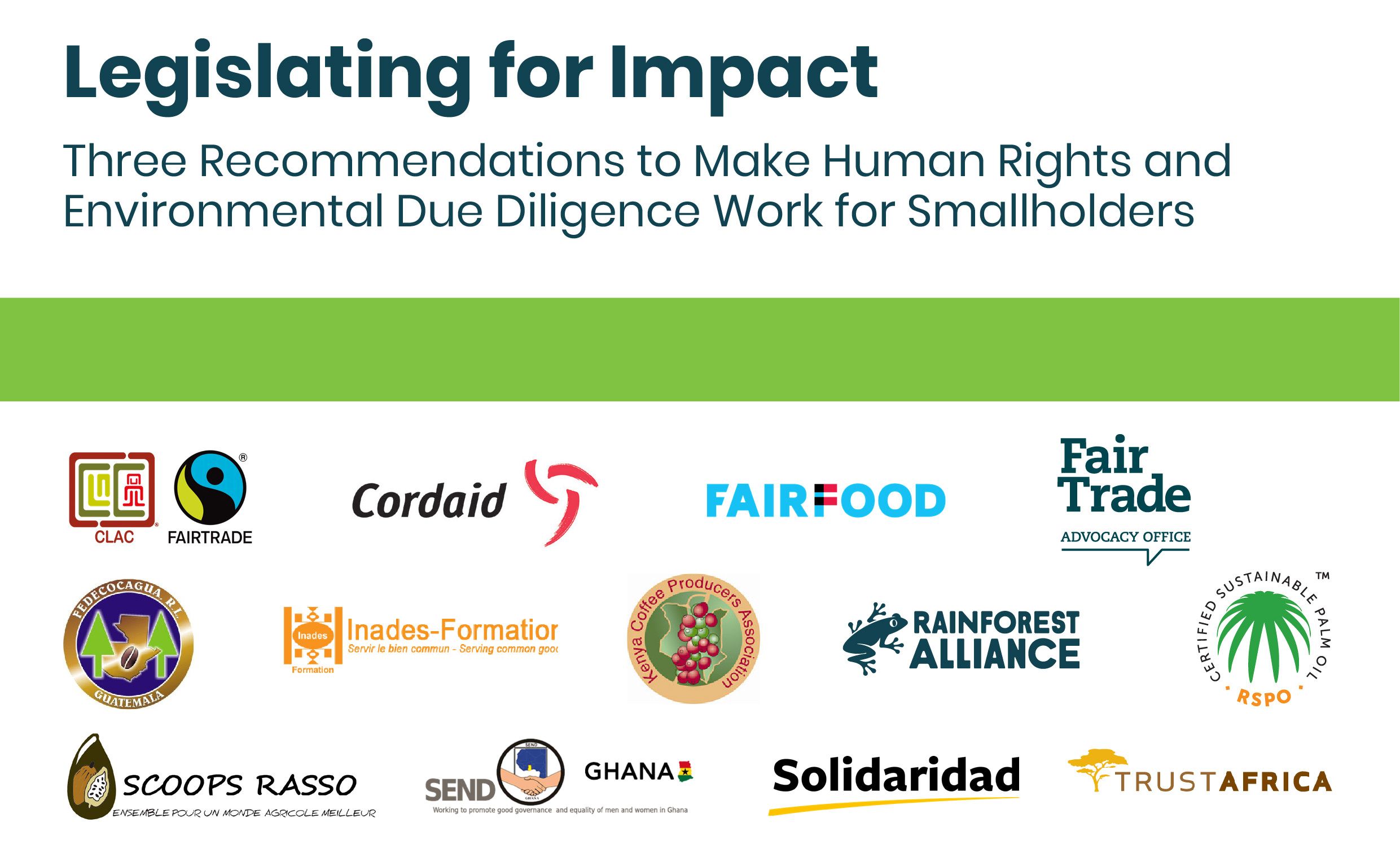Legislating for Impact: Three Recommendations to Make Human Rights and Environmental Due Diligence Work for Smallholders
To effectively stop human rights violations and negative environmental impacts in global supply chains, EU policymakers should ensure the upcoming legislation leads to positive impacts for rightsholders and improves the situation and the livelihoods of smallholders. It is key that the HREDD directive addresses the root causes of adverse impacts on human rights and the environment such as persistent poverty among smallholders.
Fifteen civil society and producer organizations join this call to action and release a briefing that provides three overarching recommendations to make HREDD legislation work for smallholders.
The briefing strongly recommends that the legislation and accompanying guidance should:
- Focus on living incomes, living wages and responsible purchasing practices to reduce poverty among smallholder farmers.
- Encourage lasting trade relationships and continuous improvement in global value chains.
- Require the engagement and active collaboration of rightsholders in all the stages of the human rights and environmental due diligence processes.
We are convinced that including concrete measures to involve and support smallholders will make the legislation effective. It is also a matter of social justice and solidarity with the most marginalized actors in global supply chains who produce a third of the world’s food supply. Smallholder farmers are a vital part of the solution to ending persistent poverty, and the EU must prioritize their rights in creating legislation that will have a truly sustainable and inclusive impact.
